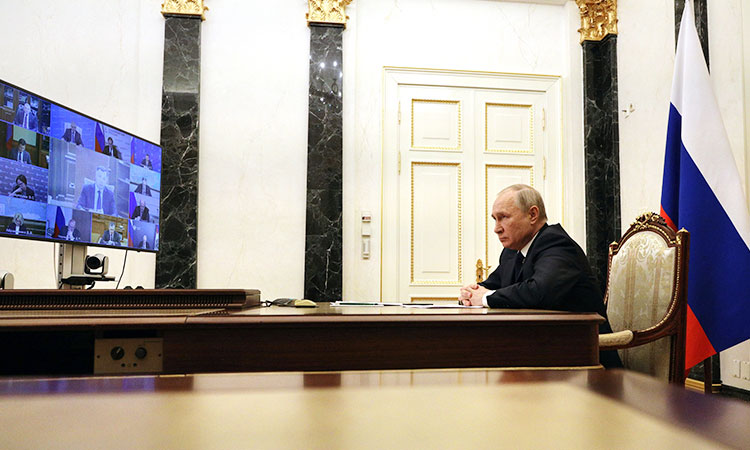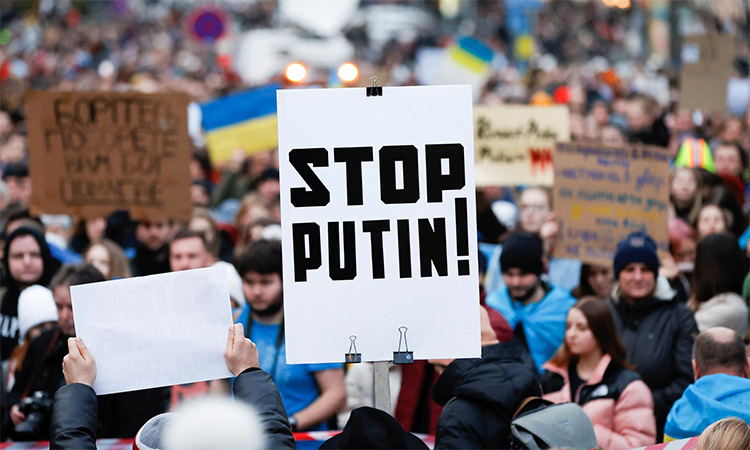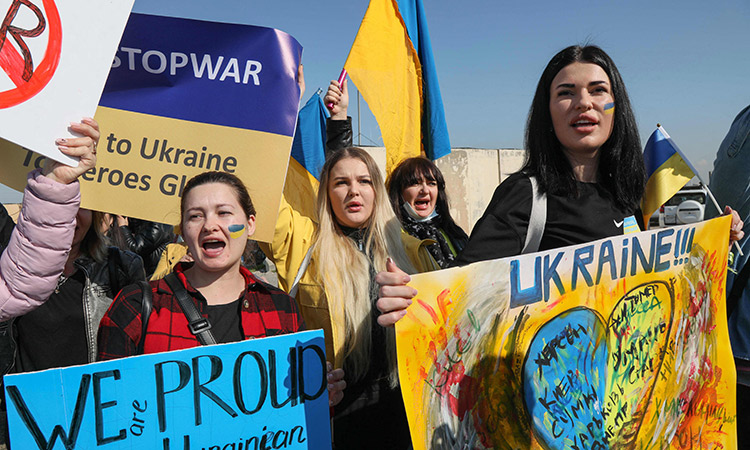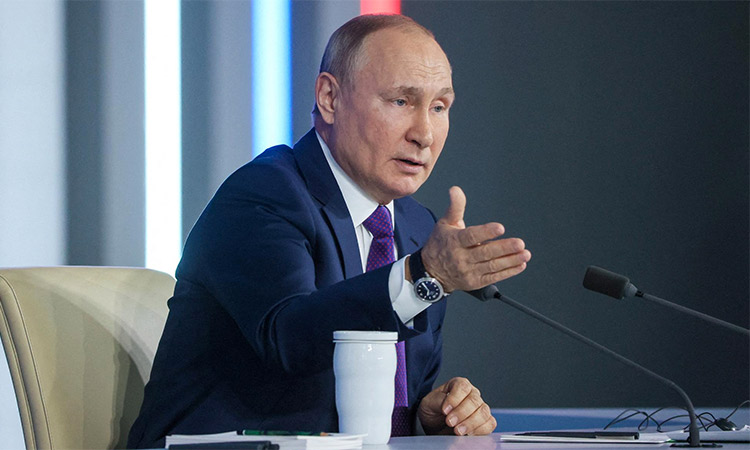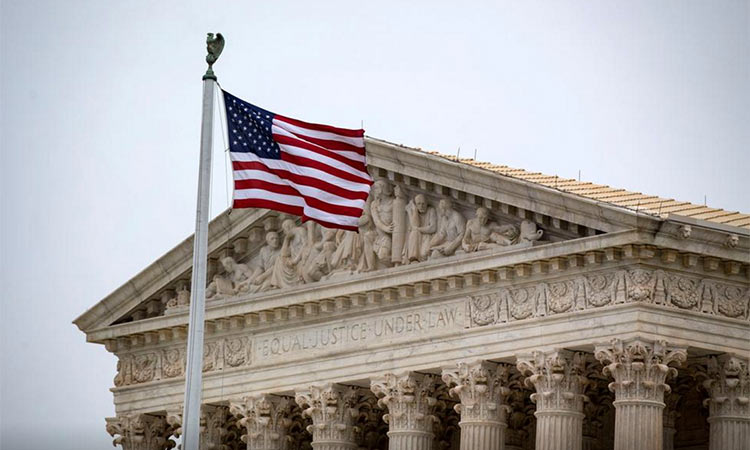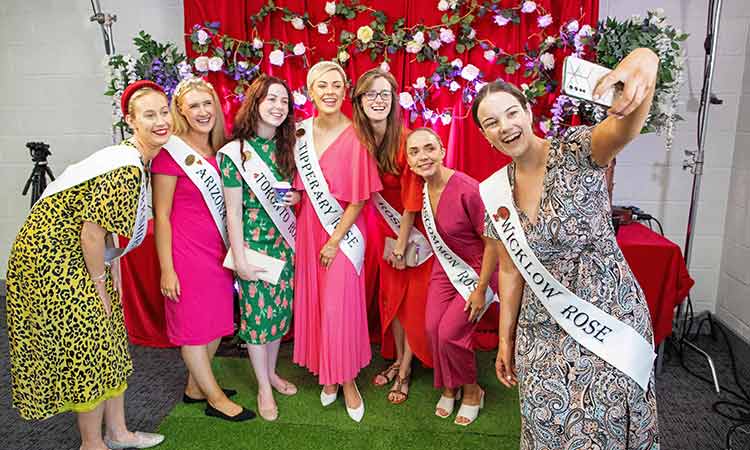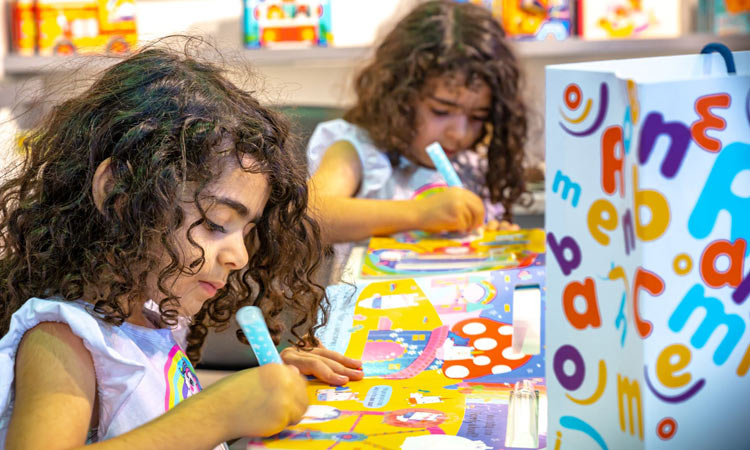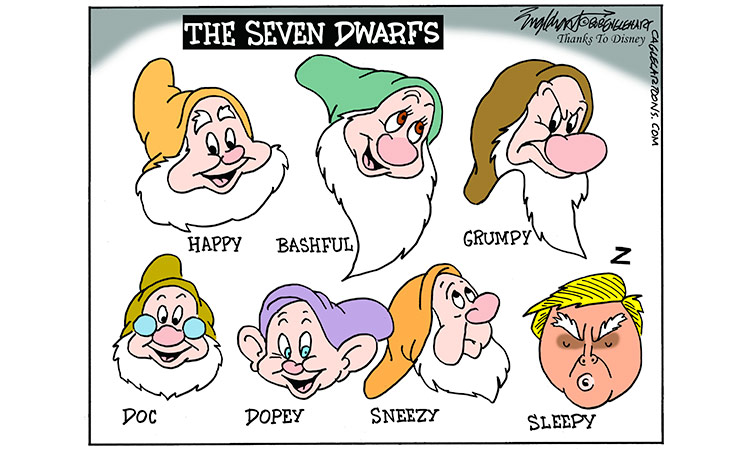Ukraine war haunts G20 ministers’ meet
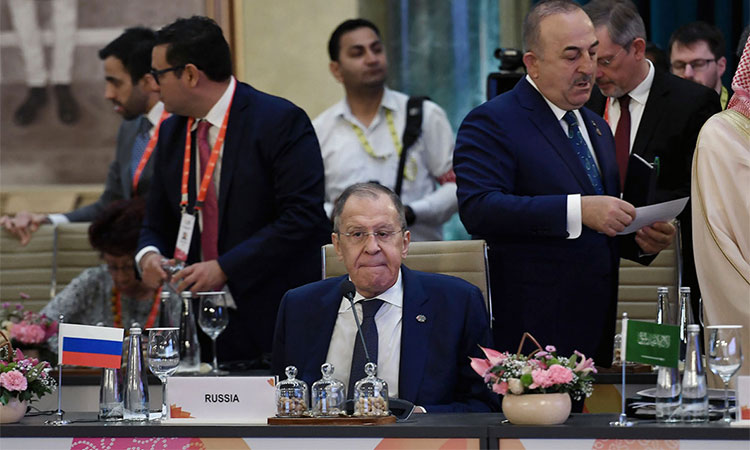
Russian Foreign Minister Sergey Lavrov (center) attends the G20 foreign ministers' meeting in New Delhi. AP
The Indian stand seemed to imply that the Ukraine issue should not come in the way of discussing the economic crisis facing many countries in the world. And it also seems that India is of the view that discussion of the unresolveable Ukraine issue should not wreck the rest of the G20 agenda. The Western countries seem to disagree. French Foreign Minister Catherine Colonna said, “The G20 must respond firmly, like it did at the Bali summit. The message at Bali was clear, as G20, we need to deliver solutions that protect the most vulnerable, instead of leaving them to suffer from Russia’s war.”
The Western leaders, like French President Emmanuel Macron, German Chancellor Olaf Scholz and Italian Prime Minister Giorgina Meloni, who is on a visit to India, had been pleading with Modi to mediate with Russia. Russian Foreign Minister Sergey Lavrov criticised the West for blaming Russia for their (Europe’s) own failure. He said, “A number of Western delegations turned the work on the G20 agenda into a farce, wanting to shift the responsibility for their failures in the economy to the Russian Federation.” It appears that the rift between Russia on the one side and the US-led West on the other will continue to haunt the deliberations of the G20 for the rest of the year, including the summit meeting due to be held in September this year.
It is evident that Russia and the West are not willing to give an inch in their stated position. The Russians are now saying that they are ready for talks provided it is conceded that the annexed territories of Ukraine will not be returned to Ukraine. It is a position that Ukraine President Volodymyr Zelensky rejects totally. It is not however known whether the Western position is slightly more qualified than that of Ukraine. The Ukraine war, which has entered the second year, appears to be a long-drawn one like the war in Vietnam. There is little doubt that the global economic crisis of rising fuel prices and rising inflation and food shortages is a pressing one and it cannot be relegated to the background. The economic problems are exacerbated by the war in Ukraine but they are not entirely due to the war.
One of the reasons that the West does not want to focus on the economic agenda is due to the fact because it does not want to take on the responsibility of restructuring the global debt which is impacting economies of lower middle income countries like Sri Lanka and Pakistan. Lavrov is partially right when he said that the West was trying to use the war as a pretext to avoid the discussion on the economic issues. It is also a fact that a prolonged war in Ukraine poses a greater security threat to the West because a cornered Russia — and Russia is not winning this war due to the intense resistance of the Ukrainians — would fall back on its nuclear weapons option. Russian President Vladimir Putin has already refused to enter the new START (Strategic Arms Reduction Treaty). The resolution of the Ukraine problem remains key to the larger global security architecture.
